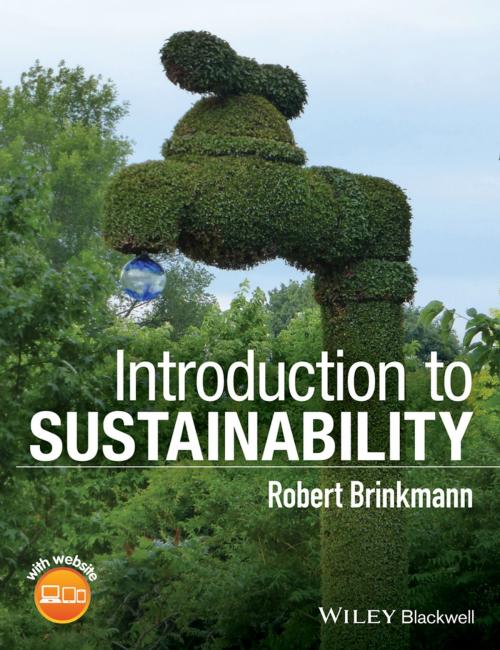| Author: | Robert Brinkmann | ISBN: | 9781118487211 |
| Publisher: | Wiley | Publication: | February 23, 2016 |
| Imprint: | Wiley-Blackwell | Language: | English |
| Author: | Robert Brinkmann |
| ISBN: | 9781118487211 |
| Publisher: | Wiley |
| Publication: | February 23, 2016 |
| Imprint: | Wiley-Blackwell |
| Language: | English |
Introduction to Sustainability is the first major textbook to review major themes in the cutting-edge field of sustainability. The book is suitable for introductory interdisciplinary courses on sustainability, as well as those in the fields of geography, geology, sociology, planning, political science, and anthropology. Brinkmann’s book allows students to see the world in new ways while also encouraging them to become part of the change needed to ensure the long-term sustainability of the planet. The text includes material on the development of the field of sustainability; environmental sustainability issues like water, food, and energy; social sustainability themes like environmental justice and transportation; and economic sustainability topics like green businesses and economic development. The book concludes with a chapter on sustainability issues in college and universities. Brinkmann intersperses many fascinating case studies and text boxes that encourage students to deeply explore the material. This is a book that not only organizes the complex field of sustainability, but also encourages students to take action to make the world a better place.
Introduction to Sustainability is the first major textbook to review major themes in the cutting-edge field of sustainability. The book is suitable for introductory interdisciplinary courses on sustainability, as well as those in the fields of geography, geology, sociology, planning, political science, and anthropology. Brinkmann’s book allows students to see the world in new ways while also encouraging them to become part of the change needed to ensure the long-term sustainability of the planet. The text includes material on the development of the field of sustainability; environmental sustainability issues like water, food, and energy; social sustainability themes like environmental justice and transportation; and economic sustainability topics like green businesses and economic development. The book concludes with a chapter on sustainability issues in college and universities. Brinkmann intersperses many fascinating case studies and text boxes that encourage students to deeply explore the material. This is a book that not only organizes the complex field of sustainability, but also encourages students to take action to make the world a better place.















